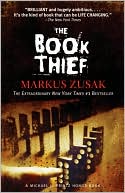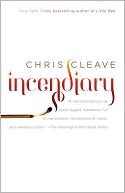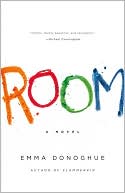by Joan
One of my
favorite joys in life is discovering a new author. I imagine a few of you might
agree. It starts when you open the cover and dive into the first pages (or listen or
scroll). You hope for carefully chosen words, carved into lovely or
snappy or funny (or all three) sentences, one after the other until you are
hooked. A smile curves your lips. “Yes, this is going to be good.”
But just
because an author is a genius on the page doesn’t mean that author can deliver
an engaging talk. It’s not a requirement, surely, but I’m wowed by those who
can do both. I can’t count the number of author talks I’ve been to—I was just
browsing my wide shelf of autographed books yesterday—but I’m awed when a
speaker emulates the perfect combination of charm, humor and modesty.
 |
| Robin Sloan at RROB |
Last week Elizabeth and I went to Richardson Reads One Book, featuring Robin Sloan's Mr. Penumbra’s 24-Hour Bookstore. In my opinion, as far as cool
writers go, Robin Sloan is right up there with Jamie Ford and Chris Cleave.
Sloan is a
rare combination of techie and bibliophile, interested in the concept of “media
inventor,” which he describes as “someone primarily interested in content
(words, pictures, ideas) who also experiments with new formats, new tools, and
new technology. The paperback pioneer Allen Lane was a media inventor. Early
bloggers were media inventors. The indie video game scene is full of
media inventors.”
Sloan
suggests that technology is not an intruder or interloper into the book world, but that it’s been
there all along. He described his visit to the Grolier Club, New York City's exclusive group
of rare book collectors, where he got to see in person the types of books he
had researched and written into Mr. Penumbra’s story. His novel includes a
fictional book published by Aldus Manutius, the 15th-century
publisher who Sloan considers a pioneer in technology. Manutius, concerned with
user experience, published the first small books. Before then, books were too
large for laps, meant to be read from lecterns. Sloan considers Manutius’s new
format as unique and high-tech as an iPhone.
Read his
explanation of the concept of flip-flop, “the process of pushing a work of art
or craft from the physical world to the digital world and back again — maybe
more than once.”
As a former
Twitter employee, it’s fitting that the idea for Sloan's book was sparked by a
friend’s Twitter feed:
“Just misread ‘24-hour bookdrop’ as
‘24-hour bookshop.’ the disappointment is beyond words.”
He wrote a
short story and from there, the novel, published by Farrar,Straus and Giroux. As someone who’s crazy for bookstores and libraries (hello Bodleian), I added the book to my TBR immediately. But contrary to Sloan’s understanding, not everyone in the Richardson audience had read his book. That night I downloaded his book and after reading the first page, I smiled. “Yes, this is good.” It’s also charming, humorous and unpretentious, just like its author. If you haven’t read it, you should.
From the publisher's website:
The Great Recession has shuffled Clay Jannon
out of his life as a San Francisco Web-design drone—and serendipity, sheer
curiosity, and the ability to climb a ladder like a monkey has landed him a new
gig working the night shift at Mr. Penumbra’s 24-Hour Bookstore. But after just
a few days on the job, Clay begins to realize that this store is even more
curious than the name suggests. There are only a few customers, but they come
in repeatedly and never seem to actually buy anything, instead “checking out”
impossibly obscure volumes from strange corners of the store, all according to
some elaborate, long-standing arrangement with the gnomic Mr. Penumbra. The
store must be a front for something larger, Clay concludes, and soon he’s
embarked on a complex analysis of the customers’ behavior and roped his friends
into helping to figure out just what’s going on. But once they bring their
findings to Mr. Penumbra, it turns out the secrets extend far outside the walls
of the bookstore.
With irresistible brio and dazzling intelligence, Robin Sloan has crafted a literary adventure story for the twenty-first century, evoking both the fairy-tale charm of Haruki Murakami and the enthusiastic novel-of-ideas wizardry of Neal Stephenson or a young Umberto Eco, but with a unique and feisty sensibility that’s rare to the world of literary fiction. Mr. Penumbra’s 24-Hour Bookstore is exactly what it sounds like: an establishment you have to enter and will never want to leave, a modern-day cabinet of wonders ready to give a jolt of energy to every curious reader, no matter the time of day.
With irresistible brio and dazzling intelligence, Robin Sloan has crafted a literary adventure story for the twenty-first century, evoking both the fairy-tale charm of Haruki Murakami and the enthusiastic novel-of-ideas wizardry of Neal Stephenson or a young Umberto Eco, but with a unique and feisty sensibility that’s rare to the world of literary fiction. Mr. Penumbra’s 24-Hour Bookstore is exactly what it sounds like: an establishment you have to enter and will never want to leave, a modern-day cabinet of wonders ready to give a jolt of energy to every curious reader, no matter the time of day.
















